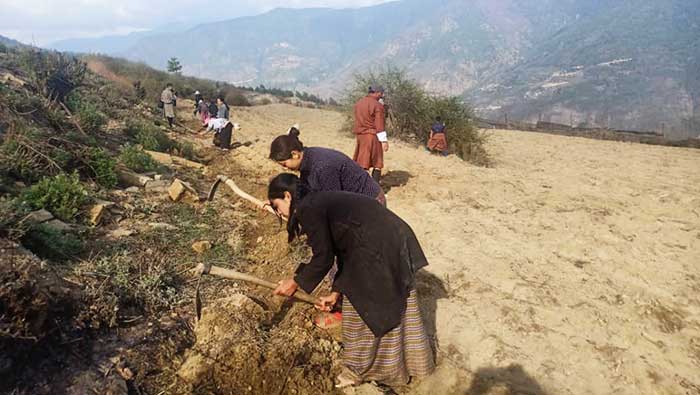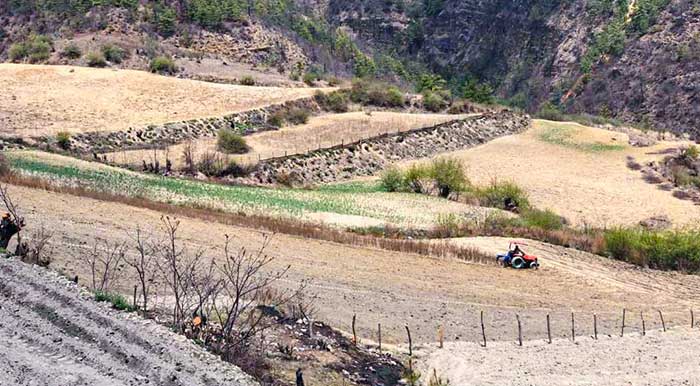Phub Dem | Paro
A group of 11 youths from Khamda village under Dogar gewog in Paro is trying to revive the long-forgotten practice of cultivating mustard in the wake of Covid-19.
Dogar gewog in Paro was known for mustard oil. But it has been around a decade since the last cultivation in the village.
Dogar Gup Lhap Tshering said that the farmers discontinued the cultivation due to lack of oil extraction machine and the availability of cheap substitutes such as imported oil.
The group comprises mostly of class X and XII dropouts. They formed the group to cultivate mustard in 10 acres that were left fallow for three years and now leased to them for free.
Tandin Wangyal, the group coordinator, left school after class XII. He said that he had been working in the field since 2011 after his father passed away.

He said that with support from the gup, he formed a youth group to cultivate mustard. “The production will at least reduce the gewog’s intake of imported oil.”
Besides, the residue after the extraction would be animal feed, he said.
The youngest group member, Phub Dem, said that it was an opportunity for them to help and support the community.
She said that what they were doing would encourage other youths to take up agriculture and farm work.
Paro dzongkhag’s agriculture officer, Tandin said that with the outbreak, teenagers were actively taking part in agriculture works.
There are 13 youth groups formed after the Covid-19 pandemic in Paro today. The youth groups revived 32 acres of fallow land.
Although Dogar gewog is known for extensive vegetable cultivation, this is the first group in the gewog specialising in growing mustard.
Tandin said that the project was to address Covid-19 impacts on food self-sufficiency and that the initial plan was to make gewog sufficient in edible oil.
He said that unlike other agriculture work, growing mustard was easier, and the cultivation does not require excess water. “If in case the country has to remain in lockdown for a long time, we should be ready with local produce.”
Furthermore, the dzongkhag plans to extend the cultivation in different villages.
The dzongkhag agriculture office provided manure, free seeds, farm machinery, technical assistance and electric fencing.
Gup said that an oil extracting machine was already ordered and would arrive soon.


